Many US union activists remember Falah Alwan. As the occupation of Iraq unfolded in the summer of 2005, he and several Iraqi union leaders traveled here to make clear the impact of sanctions and invasion on his country’s workers. From one union hall to another, on both coasts and through the Midwest, Alwan and his colleagues appealed for solidarity.
In the end, the war’s damage went virtually unhealed, but the ties forged between workers and unions of the two countries have remained undiminished. Last week, as both face the coronavirus pandemic, Alwan wrote to the friends he made in those years. “The news from New York is horrible,” he commiserated. “I believe the days to come will be much worse than they are now, not only in Iraq but for you also.”
In 2005, the Iraqis effectively dramatized the human cost of US policy. Today, as both countries face the coronavirus, the devastating situation of Iraq’s people calls for revisiting that question of responsibility.
This past week, Reuters reported that confirmed cases numbered instead between 3,000 and 9,000, quoting doctors and a health official—a report that led the Iraqi government to fine the agency and revoke its reporting license for three months. The higher figure would give Iraq a per capita infection rate higher than that of South Korea, one of the virus’s early epicenters.
Unions and civil society organizations must now try to make up for Iraq’s political paralysis and the partial dysfunction of its government. “Because of our ruined health care institutions,” Alwan explains, “the government hurried to impose a general curfew [a stay-at-home order] to stop the outbreak and a rapid collapse in the whole situation.”
That had an enormous impact, especially on workers. Public employees encompass 40 percent of the workforce, and in theory should still be receiving salaries. But Hashmeya Alsaadawe, head of the country’s union for electricity workers and Iraq’s highest-ranking woman union leader, points out that 80,000 of her members have already gone without wages for months because of the country’s economic crisis. Yet they are expected, and do, show up for work to provide essential services. In oil refineries and state-owned factories, it’s the same situation—essential and unpaid—one of the reasons for the huge demonstrations that have challenged the government since last October.
“There’s not even a promise of pay for workers losing jobs in the private sector,” Alwan adds. “And more than 7 million Iraqis only have informal work. To survive, they’re obliged to violate the curfew, especially in the slums where 3 million live in Baghdad alone. Authorities have detained more than 7,000 people there, and fined more than 3,000 in Najaf.” Iraq’s population is about 40 million.
WAR, SANCTIONS AND IRAQ’S HEALTH CARE SYSTEM
Economic desperation contributes to the impact of the virus in Iraq, but another factor makes it much more lethal. The spread of Covid-19 is taking place in a country with a devastated health care system. The United States owns a great part of the responsibility for this. Two invasions, a decade of sanctions, and the occupation largely caused the ruin of Iraq’s medical and public health systems.
According to an analysis by the Enabling Peace in Iraq Center, “Before the imposition of international sanctions in 1991, Baghdad operated some of the most professional and technologically advanced health care and public health institutions in the Arab world.” The Ministry of Health operated 172 modern hospitals, 1,200 primary care centers and 850 community clinics, providing free health care with an annual budget of $450 million. While the Iran-Iraq War of the 1980s produced enormous casualties, the infrastructure itself was not attacked.
Public health depends on well-functioning water and sanitation systems, which served 90 percent of the population in the 1970s. This infrastructure was largely destroyed by US bombing in the first Gulf War in 1991. The EPIC report noted, “By March the Tigris River was ‘running thickly and slowly with human waste,’ according to a Baghdad University law professor. An 87-member international monitoring committee reported that in Iraq’s 30 largest cities, electricity, water, and sewage services were close to total collapse.… Deliberate targeting of civil infrastructure by US air strikes, and enduring UN sanctions…dissolved the foundations on which Iraq’s medical infrastructure was built.” In the 2003 invasion, 7 percent of Iraq’s remaining hospitals were destroyed and 12 percent looted in the subsequent chaos.
Over a third of the country’s 52,000 licensed physicians fled during the sanctions period of the 1990s. Then another 18,000, over half of those who had remained, left during the extreme violence that followed the US occupation. That violence especially affected health care workers. Omar Dewachi, a professor at Brown University, says Baghdad’s hospitals were “transformed into ‘killing fields.’” By 2012, Iraq had a third of the doctors, per capita, of Jordan, Syria or even the Israeli-occupied territories.
PRIVATIZATION AND CUTS
Instead of rebuilding the health care system and basic infrastructure, the occupation introduced private ownership. Now Iraq has a two-track system for health care in which basic services are provided by the Ministry of Health, although they’re no longer free. Sami Adnan, an activist in Workers Against Sectarianism, which helped organize the protests that began last October, charges, “Today we have to pay for every single visit and often, in order to get treatment, we are obliged to give a bribe to the few remaining doctors in the country.”
Iraqis—with money—can buy treatment at the Andalus Hospital and Specialized Cancer Treatment Center, a 140,000 square-foot hospital on the eastern side of Baghdad. Owned by mogul Rafee al-Rawi, it boasts a mammography machine, PET and CT scanners, an MRI machine, and even an 8,300-ton cyclotron to manufacture a rare anti-cancer medicine. Or they can simply get treatment in another country with a better health care system. Both alternatives are subsidized by the government. Or they can pay for drugs smuggled into the country. Forty percent of the limited drugs available are brought in illegally, after merchants pay bribes of $30,000 per container.
Iraq’s old State Company for Drugs Industries used to manufacture 300 drugs, and now makes only half that. “We used to export to Eastern European and Arab states. Now look at us,” says Mudhafar Abbas, a manager at the State Company for Marketing Drugs and Medical Appliances.
Driving the decline is a sharp cut in the money the Iraqi government budgets for health care, to just 2.5 percent of the government’s overall $106.5 billion budget, a much lower rate than in the countries around it. The military, by contrast, gets 18 percent of expenditures, and the oil industry 13 percent. Even health care’s small appropriation is now in danger. “A catastrophic economic situation is sweeping the whole country,” Alwan warns, “because the budget was calculated when oil’s price per barrel was $56, and it is now $24 [recently rising to $34—ed]. Oil revenue makes up 90 percent of the budget, so officials plan to cut salaries, and the exchange rate of the Iraqi dinar to the dollar. Millions of workers, especially in the public sector, will pay for this.”
The head of the Parliamentary Human Rights Committee, Deputy Arshad al-Salhi warned that even before the virus Iraqis were suffering from a lack of food and miserable wages. He urged the Ministry of Health to provide for families below the poverty line and the unemployed. “This strategy must be worked out by the competent authorities immediately, otherwise we are going toward a famine,” al-Salhi said.
Iraq’s current prime minister designate, Adnan al-Zorfi, announced a program at the end of March to create a crisis committee, enact measures to detain the virus’s spread, provide food to those who need it, and ask for international assistance. The government would provide an “appropriate budget to provide for the requirements.” Where the money would come from, no one knows. He then called on social groups outside the government to help provide aid.
The Oil Ministry could ramp up production in its state-operated fields, but must depend on the willingness of oil workers. Their union, the Iraqi Federation of Oil Workers, is the most powerful in the country. It, along with other unions, strongly backed the protests rocking Iraq since last fall. Those huge confrontations in the streets led to the resignation of al-Zorfi’s predecessor, Muhammad Tawfiq Allawi, and his predecessor, Adel Abdul Mahdi.
A WAVE OF PROTEST DEMANDING CHANGE
Beginning during the Arab Spring of 2009, waves of demonstrators have occupied Baghdad’s Tahrir Square, with smaller protests in Basra and other cities. Hundreds of thousands of Iraqis have risked confrontation with troops and armed militias to condemn the failure of the government to provide jobs, clean water, and health care. Infuriating especially are the electrical failures, providing no more than a few hours of power each day in the blistering summer.
In 2018 Iraqi Communists joined forces with cleric and militia leader Moqtada al-Sadr, hoping to harness the power of the protests in their Sairoon electoral coalition. They campaigned against corruption and the patronage system that divides government posts according to religion. While Iraqi unions don’t have a formal endorsement process for candidates, Sairoon clearly had the support of many, if not most, union members. It won a plurality of votes in a multiparty system, but not enough seats in Parliament to form a government.
Last year, the demonstrations surged again. In September hundreds of doctors filled Baghdad streets, demanding bigger budgets for health care, and better pay and security for medical workers. In October thousands of young people came out in every major Iraqi city. And on October 29 the Iraqi military fired on them, killing hundreds in Baghdad, while paramilitaries murdered 18 in Karbala. In Tahrir Square young doctors tried to bandage wounds and provide emergency triage care.
The oil workers were deeply involved. “We stand in solidarity with the demonstrations against corrupt rule in Iraq,” their statement said. “The Iraqi people of all classes stand together as one to demand their rights. These rights have been taken away by an unjust government that uses violence, including sniper fire, against defenseless people who have nothing but their faith in God and in the justice of their cause.” In southern Iraq, where the oil and container terminals are located, union members shut down the ports.
In a prescient criticism, unions condemned the Iraqi government for growing completely dependent on oil income, making the country vulnerable to price shifts, while neglecting agriculture and manufacturing, important parts of earlier economic development. From October to March the demonstrations continued. By then, according to the Independent High Commission for Human Rights, the death toll had reached 566, 10 times the virus deaths so far, while the number of injured topped 17,000.
Then Covid-19 hit. And while many of those camped out in Tahrir Square left, not all did. Some remained, and began forming teams to go into neighborhoods and talk about the health crisis. The Iraqi Students Union set up a special medical unit to give basic examinations. For these activists, demonstrating against the government and working to overcome the virus are connected.
Sami Adnan says, “The reasons why we took to the streets in recent months were precisely these: the social and health system is totally insufficient to meet people’s needs. Inside our tent village in Tahrir Square, we are disinfecting everything: clothes, tents, mattresses, blankets, tools and utensils. We are distributing personal protective equipment such as masks and gloves.”
Iraqi journalist LuJain Elbaldawi agrees: “The situation in Iraq is heading toward a comprehensive health crisis that the government is unable to cope with; thus, has resorted to drawing from civil society institutions, religious organizations, and charities.”
At first many clerics, including Moqtada al-Sadr, urged people to continue to come to the mosque and attend religious events. Planes continued to arrive with pilgrims from Iran, where the virus is raging. After pleas from health authorities, however, the imams reversed their earlier edicts. Some went further. In Karbala the al-Abbas shrine built a hall with 52 rooms for infected people. Mullah Hussein al-Awsi in Baghdad told the news website Al-Monitor, “We have formed teams of commission members to disinfect public spaces such as shops, public markets, sports arenas and some of the residential neighborhoods that are difficult for the government to reach.”
Grassroots groups and individuals responded as well. In Baghdad, mobile bakeries travel through neighborhoods, distributing bread so that residents don’t have to leave home. As people are doing all over the world, activist Nadia Mohammed in Kirkuk began making and handing out face masks to those with no money to buy them.
Hashmeya Alsaadawe, who is also president of the Basra Trade Union Federation, says the ability of her union to provide aid is limited by the fact that “the government does not recognize our legitimacy nor the legitimacy of other unions.” This denial dates back to the Saddam Hussein dictatorship, when the government prohibited unions in the public sector, including oil, electricity, and the state enterprises that still dominate the economy.
Under union pressure, the government has made changes in some workplaces, by having only half of the workforce on the job at one time. In others, the shifts have been lengthened in order to increase the number of days off. But Alsaadawe says the rules can change in each department and enterprise. “Changes were also too slow, and didn’t take into account the seriousness of this virus.
Some workplaces only distributed sanitizers in a few departments. Workers who labor crowded together were not released, nor were masks and gloves distributed to them. Individuals had to get them for themselves.”
POLITICAL DEMANDS
Many unions have gone beyond trying to protect their own members, and call for holding the government responsible for its failures. A National Program of Action to Combat the Coronavirus begins by declaring, “The authorities underestimated the experience of the countries of the world, and did not lift a finger to respond to the crisis until the middle of March.”
The declaration, circulated by Hassan Juma’a Awad, president of the Iraqi Federation of Oil Workers, does not stop there. “The cause of the spread of this virus is the capitalist system in the first place,” it charges, “and its continuous quest to accumulate capital and profits at the expense of the health and life of people.”
Medicine and food should be rationed and their prices controlled, with meals provided at schools. The government must “pay the wages of all workers, public and private for four months and throughout the quarantine period, including payments for those disabled and unemployed and the old and retired.” Meanwhile, there should be a moratorium on payment of rents, loans, water and electricity bills, and taxes.
To prevent the virus from spreading, people in prisons and detention centers should be released “so that prisons don’t turn into epidemics.” Public events must be halted, including religious ones, and the border closed to pilgrims from Iran and other pandemic-stricken countries.
Given Iraq’s huge protests and wrenching political changes over the last year, unions clearly see that the important long-term response is political. By formulating demands for the whole population, not just for workers and union members, the call reaches out beyond labor to “all socialist and human-friendly forces, parties, organizations, labor and women’s and professional associations and movements calling for equality.” Ultimately, it holds Iraq’s economic system responsible for the crisis, and demands basic political change to deal with it. Whether Iraq’s political system will allow such changes will be the challenge facing Iraq’s workers moving forward.
Source

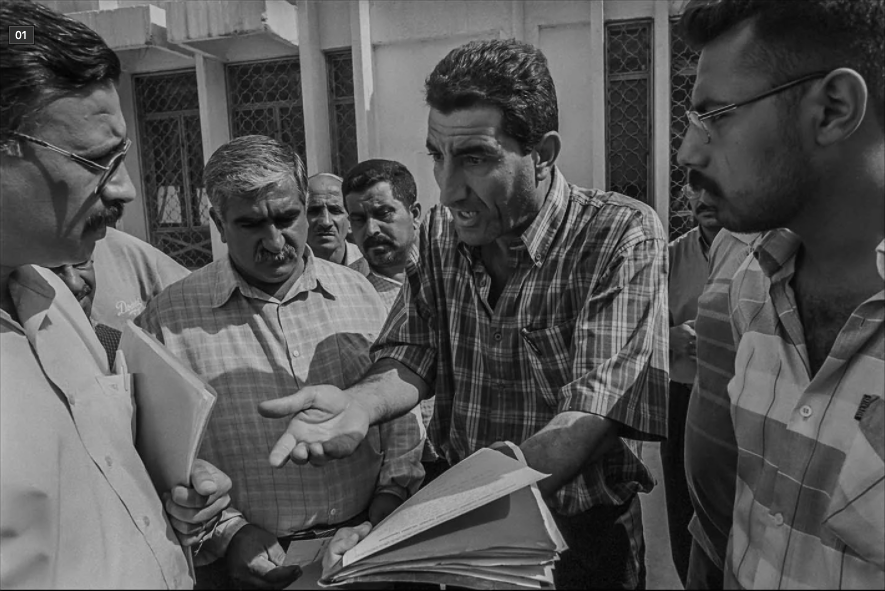
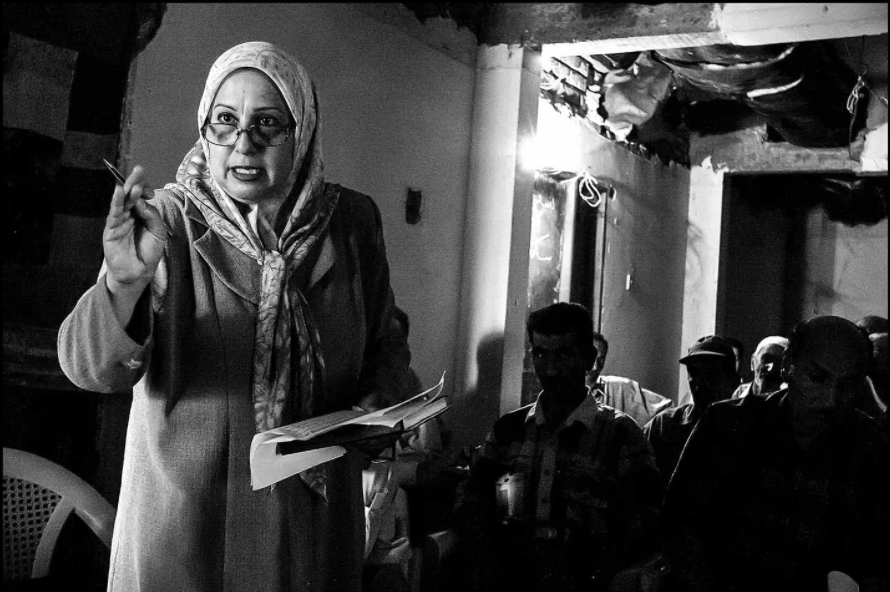
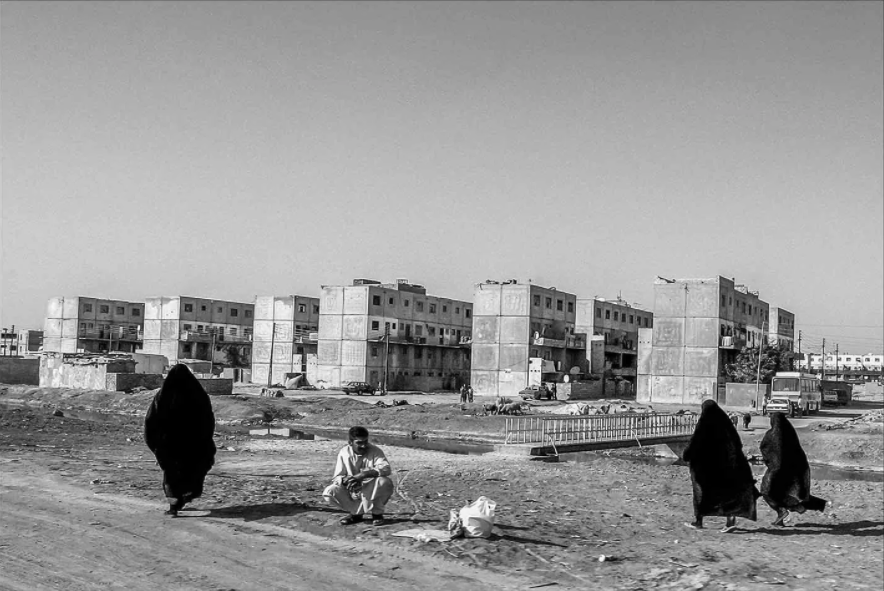
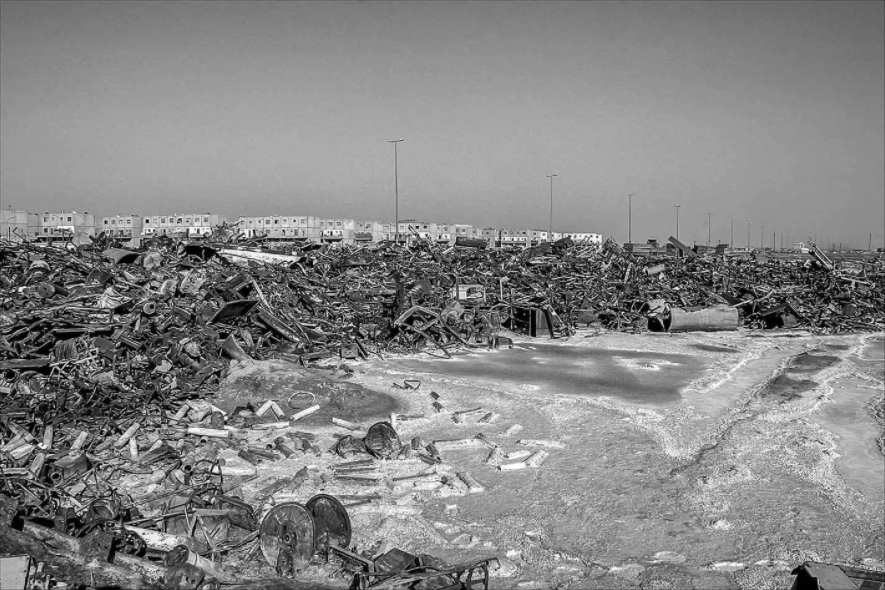
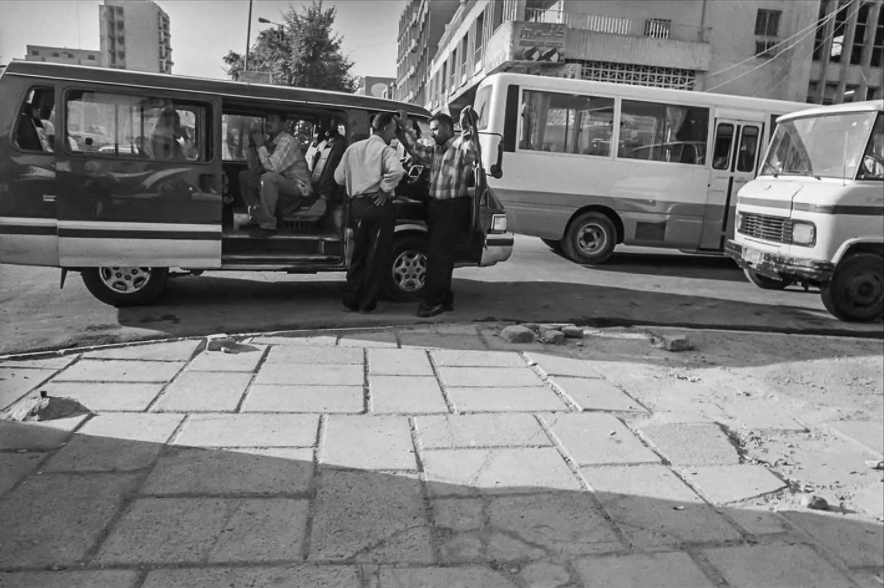
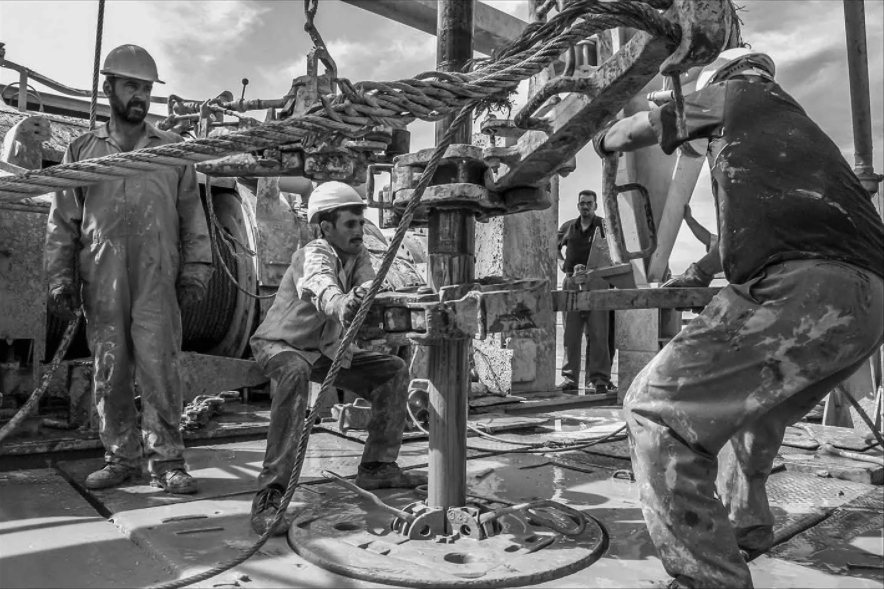
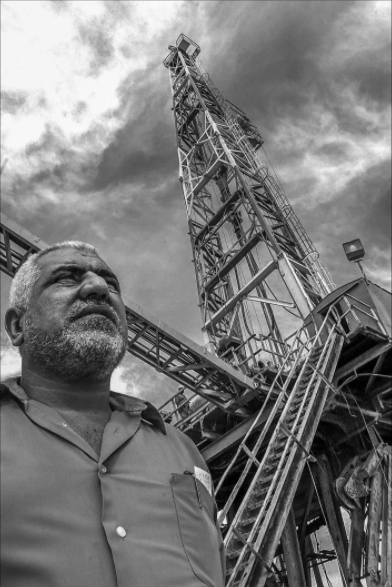
 RSS Feed
RSS Feed